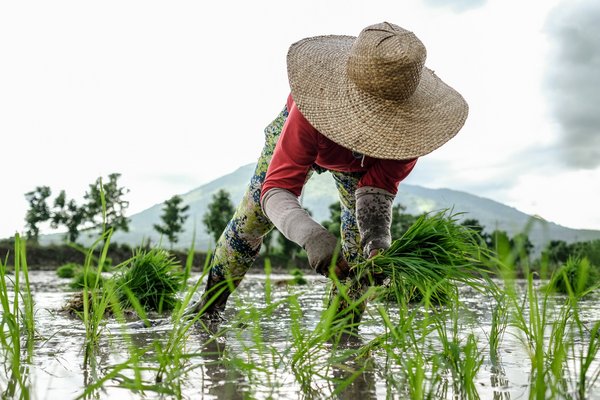- Share this article
- Subscribe to our newsletter
Sustainable Rice Landscape Initiative
A new global consortium, the Sustainable Rice Landscapes Initiative, will bring together expertise from international organisations, research institutions and business groups to tackle the enormous environmental footprint of rice production, UN Environment announced in late March 2019.
The consortium aims to introduce sustainable approaches to farming practices, incentivise production and demand for sustainable rice with market-based instruments, deliver policy support to governments, and improve knowledge sharing and collaboration on sustainable rice solutions.
Rice is a leading cause, as well as a victim, of climate change, and its production impacts many natural systems. Rice is responsible for about the same greenhouse gas emissions as Germany, particularly from methane, which is emitted from rotting vegetation in inundated paddy fields, according to UN Environment.
At the same time, rice yields and nutritional values are significantly reduced by rising temperatures, and production must increase by 25 per cent by 2050 to meet global demand. Practices such as removing rice straw can reduce methane emissions by up to 70 per cent, but farmers currently lack awareness, training, policy and market support.
The founding members of the Sustainable Rice Landscapes Initiative represent the range of partners needed to make these practices commonplace, namely UN Environment, the Food and Agriculture Organization (FAO), the Sustainable Rice Platform, the World Business Council for Sustainable Development, the International Rice Research Institute (IRRI) and Germany’s international cooperation organisation “Deutsche Gesellschaft für Internationale Zusammenarbeit (GIZ) GmbH”.
The initiative is particularly targeting a number of Asian countries where rice is one of the most important crops and the economic backbone for millions of farmers, and will seek changes in national policy, farming practices, and improvements in the supply chain. To achieve scale, the initiative is calling upon governments and international funding bodies to support their efforts.
(UN Environment/ile)





Add a comment
Be the First to Comment